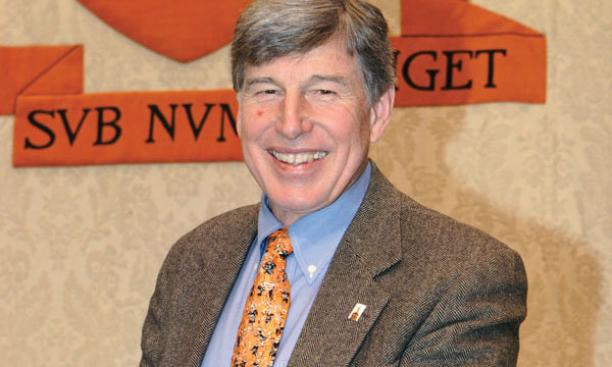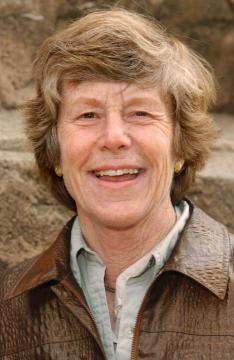
Dennis Keller '63 at Alumni Day 2008
T. kevin birch, courtesy department of annual giving
Donors recognized with renamed Keller Center

Dennis Keller '63 at Alumni Day 2008
T. kevin birch, courtesy department of annual giving
It was the 250th Anniversary Fund that spurred Poor to create the course, he said, referring to an initiative that provided funding for classes like his. “The idea was there, but if it hadn’t been for those resources, I might have said, ‘Oh, I’ll do it next year,’” Poor said.
For the last two years, Princeton’s Center for Innovation in Engineering Education has tried to provide the same type of encouraging nudge for faculty pursuing new ideas in engineering classrooms. On April 7, the center received a major boost: a $25 million gift from Dennis Keller ’63, the founding chairman of DeVry Inc., and his wife, Connie, aimed at improving the links between engineering and the liberal arts at Princeton.
The newly named Keller Center for Innovation in Engineering Education supports courses, internships, engineering community-service groups, and programs that promote leadership and entrepreneurship. With the Kellers’ gift, Poor said, the center “will greatly expand” those offerings. In the short term, the gift will add resources to existing classes like the school’s integrated engineering, math, and physics course for freshmen. Long-term priorities include more opportunities for non-engineers to increase their technological literacy. About 60 percent of non-majors take at least one engineering class, and Poor aims to bring that figure closer to 100 percent by adding to the list of engineering courses open to A.B. students (currently, there are about 20).
The center will continue to host visiting faculty members whose work relates to student interests. Next year, Engineers Without Borders founder Bernard Amadei is expected be named the Kenan Trust Visiting Professor. Princeton’s student-run Engineers Without Borders chapter has about 50 active members and ongoing service projects in Ethiopia, Ghana, and Peru.
The educational initiatives at the Keller Center grew from what former Dean Maria Klawe dubbed “engineering for a better world” in 2004, at the end of a year-long strategic planning process for the engineering school. Two of the primary architects of that vision have left Princeton: Klawe is now president of Harvey Mudd College, and associate dean T. Kyle Vanderlick became Yale’s dean of
engineering in January. But the concept remains in place, according to Poor.
The “better world” idea has influenced the engineering school’s research priorities. Poor said that faculty are focusing on four “areas of societal need”: energy, environment, health, and security. Each is broadly defined. Security, for instance, includes traditional work in national defense as well as newer research topics like secure information technology and electronic voting.
“Engineering has always been about doing useful things for society,” he said. “[‘Engineering for a better world’] is, in some ways, a reaffirmation of that aspect of the field.”

